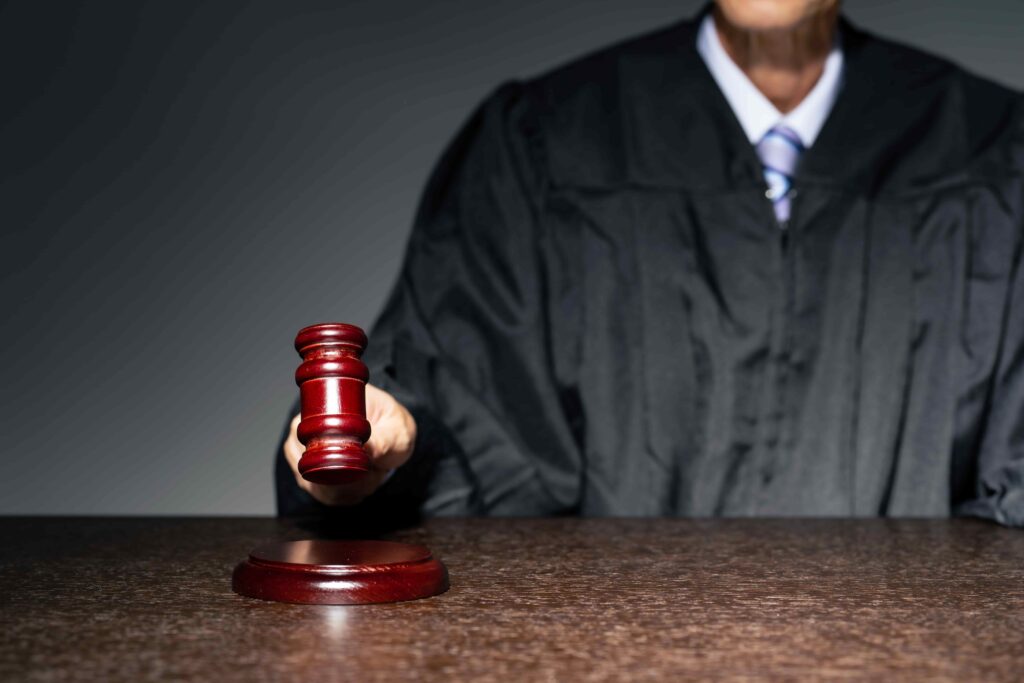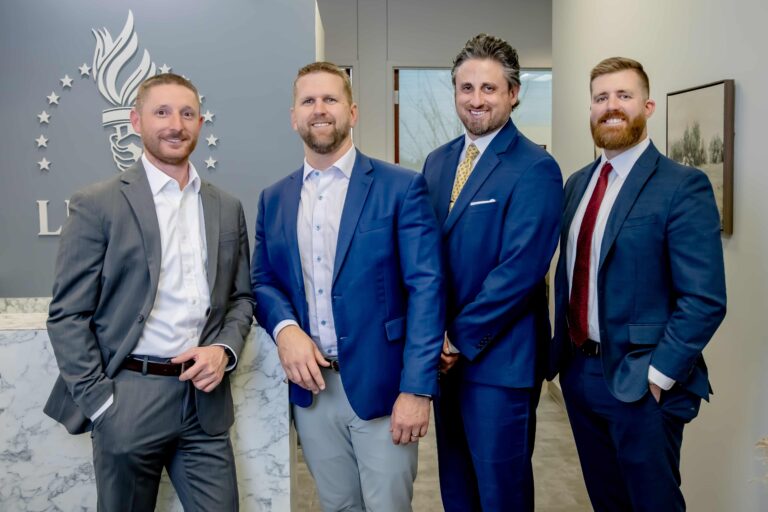
Plea bargaining in Nebraska involves negotiations between the prosecution and defense to resolve criminal cases without going to trial. The prosecutor might offer reduced charges, lighter sentences, or other concessions in exchange for a guilty or no contest plea. While this process resolves most criminal cases in Nebraska courts, defendants must understand both benefits and risks before making this life-changing decision.
Key Takeaways
- Plea bargaining resolves approximately 90% of criminal cases through negotiations between prosecution and defense attorneys rather than trials
- Accepting a plea deal provides certainty about your sentence but requires waiving fundamental constitutional rights, including jury trial and confronting witnesses
- Criminal convictions from plea deals create permanent records affecting employment, housing, professional licensing, immigration status, and gun rights
- Nebraska judges can reject plea agreements, and defendants may withdraw pleas before sentencing under specific circumstances, including inadequate immigration warnings
- Professional legal representation is crucial for evaluating plea offers, understanding long-term consequences, and protecting your rights throughout the criminal justice process
What is Plea Bargaining in Nebraska and How Does It Work?

Nebraska courts recognize two main types of agreements: charge bargaining and sentence bargaining. Charge bargaining involves reducing serious charges to lesser offenses, such as negotiating a felony down to a misdemeanor. Sentence bargaining focuses on agreeing to specific penalties, while fact bargaining limits what evidence the prosecution presents.
Nebraska district courts require plea agreements to be in writing and signed by the defendant and counsel, so all parties understand the terms. The process typically begins after initial court appearances and continues through discovery and pretrial motions.
Prosecutors evaluate several factors when considering plea offers, including the strength of their evidence, victim input, defendant’s criminal history, and available resources. Defense attorney assess these same factors from the opposite perspective, determining whether accepting or rejecting a plea serves their client’s interests.
Types of Pleas in Nebraska
When facing criminal charges in Nebraska, defendants have several plea options available, each carrying different legal implications and consequences. Understanding these differences helps defendants make informed decisions about their cases.
Guilty Plea
A guilty plea requires defendants to admit both factual guilt and legal responsibility for the charged crimes. This represents a full acknowledgment of wrongdoing and acceptance of criminal liability.
Key characteristics of guilty pleas include:
- Complete admission of guilt that can be used in related civil litigation
- Full acceptance of criminal responsibility for all elements of the charged offense
- Waiver of constitutional rights including jury trial and confronting witnesses
- Generally viewed most favorably by judges and prosecutors during sentencing
- May result in better plea bargain offers due to full acceptance of responsibility
Not Guilty Plea
A not guilty plea denies the charges and puts the burden on the prosecution to prove guilt beyond a reasonable doubt. This plea preserves all constitutional rights and allows defendants to challenge the evidence at trial.
Not guilty pleas provide the following protections:
- Preservation of all constitutional trial rights including jury trial
- Right to confront and cross-examine prosecution witnesses
- Protection against self-incrimination throughout the proceedings
- Ability to present defenses and challenge prosecution evidence
- No admission of guilt that could be used in other legal proceedings
No Contest (Nolo Contendere) Plea
A no contest plea allows defendants to accept criminal responsibility without admitting factual guilt. The court treats nolo contendere pleas the same as guilty pleas for sentencing purposes, but these pleas generally cannot be used as admissions in subsequent civil cases.
Benefits and limitations of no contest pleas:
- Avoids creating evidence for potential civil lawsuits
- Results in criminal conviction identical to guilty plea
- May protect against increased civil liability exposure
- Some judges and prosecutors view these pleas less favorably than guilty pleas
- Immigration consequences remain the same as guilty pleas
Alford Plea
Alford pleas, named after the U.S. Supreme Court case North Carolina v. Alford, allow defendants to maintain their innocence while acknowledging that prosecutors have sufficient evidence for likely conviction. Nebraska courts may accept Alford pleas when defendants have good reasons for believing they’re innocent but face strong prosecution cases.
Alford plea considerations include:
- Allows maintenance of innocence while accepting plea benefits
- Requires court approval and prosecutorial consent
- May be viewed unfavorably by some judges and licensing boards
- Still results in criminal conviction with same collateral consequences
- Useful when defendants face overwhelming evidence despite believing in their innocence
What Are the Benefits and Risks of Taking a Plea Deal?
Understanding the advantages and disadvantages of plea bargaining helps defendants make informed decisions about their criminal cases. The following comparison shows the key factors to consider when evaluating plea offers in Nebraska:
| Benefits of Plea Bargaining | Risks of Plea Bargaining |
| Certainty of outcome – Know exact sentence rather than risking harsher penalties at trial | Permanent criminal record – Affects employment, housing, and professional licensing opportunities |
| Reduced charges – Felony charges might be reduced to misdemeanors with less severe consequences | Waived constitutional rights – Give up jury trial, right to confront witnesses, and protection against self-incrimination |
| Lighter sentences – Probation might replace jail time, or sentences might be significantly shortened | Immigration consequences – Deportation or denial of naturalization for non-citizens |
| Lower costs – Less expensive than trial proceedings with reduced legal fees and court costs | Loss of civil rights – Voting rights and gun ownership restrictions for felony convictions |
| Faster resolution – Cases resolve in weeks or months rather than years of trial proceedings | Required admission of guilt – Must accept responsibility even if you believe you’re innocent |
| Reduced stress – Avoid uncertainty and emotional burden of lengthy trial preparation | Limited appeal rights – Difficulty challenging convictions after accepting plea agreements |
Accepting a plea agreement should be done with careful consideration. A criminal defense lawyer can go over the agreement, review the state’s case and evidence, and potential defenses. You should also consider your priorities and the implications of the plea.
Can a Judge Reject a Plea Agreement in Nebraska?
Nebraska judges retain the authority to accept or reject plea agreements presented to them. Courts must review proposed agreements to ensure they serve justice and protect public interests, not merely facilitate case resolution.
Judges typically consider several factors when evaluating plea agreements. The severity of charges compared to proposed sentences, victim input and impact statements, defendant’s criminal history, and community safety concerns all influence judicial decisions.
When judges reject plea agreements, defendants typically have opportunities to withdraw their pleas and proceed to trial. Nebraska’s approach follows federal precedent requiring courts to allow plea withdrawal when rejecting negotiated agreements, protecting defendants from being bound by deals courts won’t honor.
Some common reasons judges reject plea agreements include sentences that seem too lenient for serious crimes, agreements that don’t adequately address victim concerns, or deals that undermine public confidence in the justice system.
Judges might also reject agreements when they believe defendants don’t fully understand the consequences of their pleas or when factual bases for charges seem insufficient. Courts have responsibilities to ensure pleas are knowing, voluntary, and supported by evidence.
Do I Waive My Right to Appeal by Taking a Plea?

Appeals Generally Waived by Guilty Pleas:
- Right to appeal conviction based on insufficient evidence
- Fourth Amendment violations and other suppression issues
- Most trial-related constitutional violations
- Factual disputes about guilt or innocence
- Prosecutorial misconduct that occurred before the plea
Appeals That May Survive Guilty Pleas:
- Challenges to court jurisdiction over the case
- Sentences that exceed legal statutory limits
- Constitutional violations in the plea process itself
- Issues preserved through conditional plea agreements
- Fundamental constitutional violations addressed through post-conviction relief
Conditional pleas allow defendants to preserve appeal rights on specific pretrial motions while accepting plea agreements, but require prosecution and court approval. Defense attorneys should clarify appeal consequences before clients enter pleas, since plea agreement terms vary regarding which rights are waived.
How Does a Plea Affect Immigration, Gun Rights, or Professional Licenses?
Criminal convictions in Nebraska can have severe collateral consequences extending far beyond court-imposed sentences. Immigration status, professional licensing, and constitutional rights often face more significant impacts than jail time or fines.
Immigration Consequences
Immigration consequences represent some of the most serious collateral effects of criminal convictions. Aggravated felonies can result in mandatory deportation, while many misdemeanor convictions affect naturalization eligibility or reentry rights.
Federal immigration law requires Nebraska courts to advise non-citizen defendants about potential immigration consequences before accepting guilty pleas. Failure to provide these warnings can provide grounds for plea withdrawal if defendants face removal or naturalization denials.
Gun Rights and Second Amendment Issues
Gun rights face automatic revocation for most felony convictions and some misdemeanor domestic violence offenses. Federal law prohibits gun ownership for these convictions regardless of state restoration procedures.
Even seemingly minor convictions can trigger federal firearm prohibitions. Misdemeanor domestic violence convictions permanently bar gun ownership under federal law, affecting law enforcement officers, military personnel, and others whose careers depend on firearm access.
Professional Licensing Impact
Professional licensing consequences vary by profession and conviction type. Medical licenses, law licenses, teaching certificates, and other professional credentials face review after criminal convictions. Some professions impose automatic suspensions while others evaluate cases individually.
The following factors often influence professional licensing decisions after criminal convictions:
- Relationship between criminal conduct and professional responsibilities
- Time elapsed since conviction and evidence of rehabilitation
- Honesty in reporting convictions to licensing boards
- Completion of court-ordered conditions like probation or treatment
- Character references and evidence of continued professional competence
Employment and Educational Consequences
Employment opportunities also suffer after criminal convictions. Background checks reveal convictions to potential employers, landlords, and others making decisions about defendants’ futures. Some convictions create legal barriers to certain employment types.
Educational consequences include loss of federal financial aid eligibility for drug-related convictions and potential disciplinary action by educational institutions. Professional schools often require character and fitness evaluations that consider criminal histories.
What Happens if I Refuse a Plea and Go to Trial?

If you choose to go to trial, you may expect:
- Intensive preparation – Discovery becomes more extensive, motions practice increases, and witness preparation intensifies
- Uncertain outcomes – Juries might reach unexpected verdicts based on unpredictable factors, regardless of case strength or evidence quality
- Higher potential sentences – If convicted, it may be possible to face harsher penalties than those offered in plea negotiations
- Complete vindication opportunities – Successful defenses can result in acquittals or dismissed charges that plea agreements cannot provide
- Preserved appeal rights – Trial convictions maintain full appeal rights to challenge legal errors or insufficient evidence
- Potential emotional and financial costs – Trial proceedings can be emotionally draining for defendants and families while requiring more substantial legal expenses
- Multi-stage process – Trials include jury selection, opening statements, evidence presentation, closing arguments, and deliberations with multiple opportunities for defense strategies
The trial process offers opportunities for defense attorneys to challenge prosecution cases and present alternative narratives at each phase. The choice to go to trial or take a plea is personal. Your lawyer can help you review your options and create a defense strategy.
Do I Need a Lawyer to Negotiate a Plea Deal in Nebraska?
Criminal defendants in Nebraska have fundamental constitutional protections when facing charges, including plea negotiations. The Sixth Amendment to the United States Constitution guarantees every criminal defendant the right to assistance of counsel.
While Nebraska law doesn’t mandate legal representation during plea negotiations, the constitutional right to counsel underscores why professional guidance proves crucial during criminal proceedings. The complexity of criminal law, combined with the lasting consequences of any plea agreement, makes attorney representation a wise decision for most defendants facing charges.
Moreover, legal representation provides objective case evaluation when defendants might be too emotionally involved to assess situations clearly. Attorneys help separate fears and hopes from legal realities, while prosecutors may take defense attorneys more seriously than self-represented defendants during negotiations. Professional representation signals that defendants understand the seriousness of their situations and are prepared to protect their rights effectively.
FAQ for Plea Bargaining in Nebraska
Should I Take a Plea if I Think the State’s Case Is Weak?
Evaluating the strength of the prosecution’s case requires careful analysis of evidence, witness credibility, and legal issues with experienced counsel. Consider the potential sentences after trial conviction compared to plea terms, your ability to handle trial uncertainty, and whether you prefer forcing the state to prove guilt beyond a reasonable doubt despite potential consequences.
Can I Change My Mind after Accepting a Plea Deal but before Sentencing?
Possibly. Nebraska law allows defendants to withdraw pleas before sentencing under certain circumstances, particularly if the plea was not knowing and voluntary. However, courts require showing “manifest injustice” and defendants must act promptly after discovering grounds for withdrawal.
Will a Plea Bargain Show up on Background Checks in Nebraska?
Most plea bargains result in criminal convictions that appear on standard background checks conducted by employers, landlords, and licensing agencies. Only deferred adjudication or pretrial diversion agreements might avoid creating permanent criminal records.
What Happens if a Judge Rejects My Plea Agreement in Nebraska?
If a Nebraska judge rejects your plea agreement, you typically have the right to withdraw your plea and proceed to trial. The court cannot force you to accept a plea deal on different terms than what you originally agreed to with the prosecution.
Should I Accept a Plea Deal if I Believe I’m Innocent of the Charges?
This decision involves weighing the certainty of negotiated consequences against the risk of harsher penalties if convicted at trial. If you believe you are innocent, it is crucial to speak to a trusted defense attorney before accepting a plea agreement.
Get Legal Help for Your Nebraska Criminal Case

Facing criminal charges is one of life’s most stressful experiences, but you don’t have to make these critical decisions alone. Contact Liberty Law Group at (402) 865-0501 today. Our experienced criminal defense team provides comprehensive case evaluation and skilled plea negotiation to protect your rights and future.




